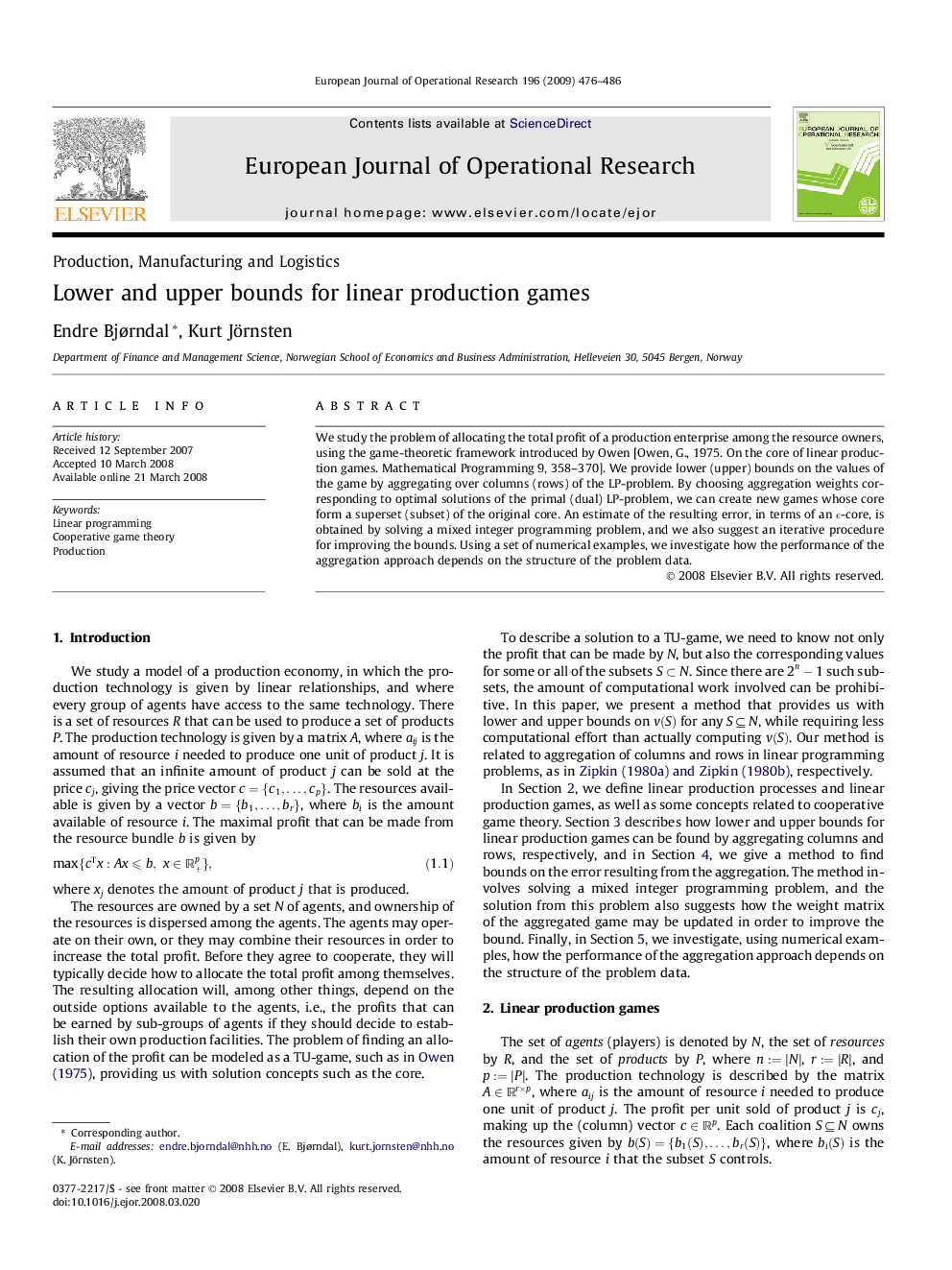| Article ID | Journal | Published Year | Pages | File Type |
|---|---|---|---|---|
| 480900 | European Journal of Operational Research | 2009 | 11 Pages |
We study the problem of allocating the total profit of a production enterprise among the resource owners, using the game-theoretic framework introduced by Owen [Owen, G., 1975. On the core of linear production games. Mathematical Programming 9, 358–370]. We provide lower (upper) bounds on the values of the game by aggregating over columns (rows) of the LP-problem. By choosing aggregation weights corresponding to optimal solutions of the primal (dual) LP-problem, we can create new games whose core form a superset (subset) of the original core. An estimate of the resulting error, in terms of an ϵϵ-core, is obtained by solving a mixed integer programming problem, and we also suggest an iterative procedure for improving the bounds. Using a set of numerical examples, we investigate how the performance of the aggregation approach depends on the structure of the problem data.
